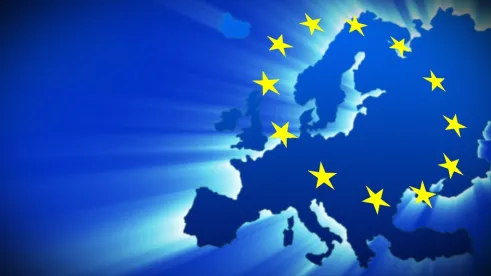ANTITRUST AND COMPETITION
The EU General Court Upheld the Commission’s Fines for Gun Jumping
On 25 February 2015, a French telecom company notified to the Commission (its proposed acquisition of a Portuguese multimedia operator). On 20 April 2015 the Commission cleared the transaction subject to the divestment of two of the purchaser’s Portuguese businesses.
On 17 May 2017, the Commission sent to the purchaser a statement of objections, alleging that the purchaser had implemented the transaction before the formal adoption of a clearance decision by the Commission, and in some instances even before the notification, in breach of the EU Merger Regulation. On 18 May 2017, the Commission adopted a decision confirming its preliminary findings and imposed a total fine of EUR 125 million on the French telecom company.
Pursuant to the EU Merger Regulation, when the EU merger filing thresholds are met, companies are under the obligation to notify transactions to the Commission prior to their implementation (Notification Obligation). The Notification Obligation ensures the Commission’s ability to detect and investigate transactions. Moreover, companies notifying transactions to the Commission cannot implement such transactions until the Commission’s clearance (Standstill Obligation). The Standstill Obligation aims at preventing the potentially negative impact of transactions on the market, pending the outcome of the Commission’s investigation. Early implementation of transactions amounts to so-called “gun-jumping”, which is a breach of the EU Merger Regulation and can entail the imposition of fines of up to 10% of the transaction parties’ aggregate turnover.
On 5 July 2018 the French telecom company brought an action before the General Court challenging the Commission’s decision. In particular, the purchaser claimed that the Commission interpreted the concept of “implementation” too widely, as the implementation of a transaction under EU law would require more than the mere possibility of exercising decisive influence on a company and that none of the elements relied on by the Commission would amount to an implementation.
On 22 September 2021, the General Court rejected the purchaser’s claims and ruled that the purchaser had implemented the transaction by having the possibility and actually exercising decisive influence over the target by interfering in the target’s ordinary course of business. This included participation in a marketing campaign, intervention in negotiations with a business partner, involvement in choice of suppliers, involvement in mergers & acquisitions activities, and approval of investments. The General Court’s judgment also addressed the issue of the exchange of commercially sensitive information of the target before clearance and closing. The exchanged information included detailed and precise information on matters such as the target’s key initiatives in terms of its strategy and commercial objectives, its cost-related strategies, key supplier relationships, recent financial data on its revenues, profit margin, its capital expenditure and budget planning, key performance indicators, and network expansion plans. The General Court found that these information exchanges had contributed to demonstrating that the French telecom company had exercised decisive influence over certain aspects of the target’s business.
The Commission was right to find the violation of both the Notification Obligation and the Standstill Obligation under the EU Merger Regulation. This judgment reaffirms the competition authorities’ trend of tougher stands on gun jumping in the recent years. Companies should carefully assess the contractual provisions that may grant de facto decisive influence, pending acquisition of the shares or assets. These provisions are subject to close scrutiny and can expose companies to far-reaching consequences. It should also be noted that, in light of the circumstance that the purchaser had informed the Commission of the transaction prior to and immediately after the signing of the share purchase agreement, the General Court reduced the Commission’s fine by 10%.
Subsidiaries Can be Held Liable for Damages Caused by EU Competition Law Infringement Committed by Their Parent Companies
On 6 October 2021, the Court of Justice of the European Union (CJEU) delivered its judgment in case C-882/19, in relation to damages actions in the European truck producers cartel sanctioned by the Commission in 2016. This judgment, which follows a reference for a preliminary ruling from the Provincial Court of Barcelona, sets out the conditions under which victims of an anticompetitive practice are entitled to bring an action for damages before the courts of a Member State against subsidiaries of companies whose conduct has been sanctioned by a Commission decision whether or not they are referred to in the decision itself.
The CJEU found that the victim of an infringement of EU competition law committed by a parent company may seek compensation from that company’s subsidiary for the resulting loss, if it proves that the two companies constituted an economic unit at the time of the infringement. Once the parent company is found liable for an infringement under Article 101(1) TFEU, victims can engage the civil liability of a subsidiary if the following two cumulative conditions are met: (i) there are economic, organisational and legal links that unite the two legal entities; and (ii) there is a specific link between the economic activity of that subsidiary and the subject matter of the infringement for which the parent company was held responsible. If these two conditions are fulfilled, the parent company together with its subsidiary constitute an economic unit.
When starting damages actions before national courts, subsidiaries must have all the means necessary for the effective exercise of their rights of defence, including the ability to dispute the fact that they belong to the same undertaking as the parent company. However, where actions for damages rely on a Commission’s infringement decision addressed to the parent company, subsidiaries cannot challenge the existence of the infringement itself. The CJEU indeed reminds how Article 16(1) of Regulation No 1/2003 provides that national courts cannot take decisions running counter to the decision adopted by the Commission.
By contrast, where no infringement decision was issued by the Commission against the parent company, subsidiaries can dispute not only that they belong to the same ‘undertaking’ as the parent company, but also the very existence of the alleged infringement.
As a result, in the present case, the Court concluded that Article 101(1) TFEU precludes a national law from providing for the possibility of imputing liability for one company’s conduct to another company only in circumstances where the second company controls the first company.
DIGITAL AFFAIRS
Recommendations for an Effective and Efficient Digital Markets Act
While the European Commission’s Proposal for a Digital Markets Act (DMA) is currently being debated by the European Parliament and the Council of the EU, the Monopolies Commission, a permanent expert committee which advises the German government on competition policy-making, competition law and regulation, published a report with its DMA recommendations.
In the report, the Monopolies Commission noted that a small number of companies are expanding their dominant position, endangering digital ecosystems. The Monopolies Commission considers such cases to be the principal competition problem in digital markets, arguing that the DMA should only cover these gatekeepers which operate in a digital ecosystem consisting of at least two connected core platform services, or which are active in a dual role, for example, as a marketplace operator and as a seller on the marketplace.
The report also recommends allowing regulatory exemptions which have clear benefits for consumers. The Monopolies Commission believes that regulatory exceptions can only be made within very narrow limits (e.g., public safety reasons) and in unambiguous cases. Undertakings would have to prove that the contestability and fairness of the digital markets are not significantly restricted by their conduct, and would also have to provide evidence of the existence of consumer benefits.
Finally, the Monopolies Commission also recommends a more comprehensive prohibition on companies self-preferencing in digital ecosystems. For example, it should be prohibited for undertakings to set up their own services, such as a browser, as a default on their own operating systems.
ECONOMIC AND FINANCIAL AFFAIRS
ESMA Issues 2022 Work Programme
On 28 September 2021, the ESMA published its 2022 Annual Work Programme setting out its priority work areas for 2022.
In 2022, ESMA will focus on initiatives to progress the Capital Markets Union, promote sustainable finance and long-term oriented markets, deal with the opportunities and risks posed by digitalization, strengthen the role of EU in global capital markets, and ensure a proportionate approach to regulation.
Against this backdrop, some of the Work Programme’s highlights include:
-
Assessing UK Tier 2 central counterparties systemic importance in the EU ahead of June 2022. In this regard, ESMA will review how national authorities handled relocation requests from UK firms in the wake of Brexit.
-
Reviewing the activity of German regulators in the aftermath of the Wirecard collapse.
-
Delivering an opinion on the review of the EU Money Market Funds (MMFs) Regulation, which, as the Work Programme indicates, could be already done in 2021.
-
Updating its Guidelines on MMF stress testing taking into account latest market developments.
-
Assessing the way credit rating agencies (CRAs) incorporate sustainability factors into their methodologies for credit ratings and outlooks and how CRAs ensure the robustness of their methodologies in this context.
-
Monitoring regulatory and supervisory developments in non-EU countries that were already considered equivalent, and providing technical input to the Commission for potential new equivalence decisions.
Indicative is the comment on the 2022 Work Programme by ESMA’s Securities and Markets Stakeholder Group, which indicated that ESMA should be proactively monitoring regulatory developments in non-EU countries and notably in the UK, as they could have an impact on the relative competitiveness and attractiveness of EU financial markets.
European Court of Auditors Scrutinize EU Sustainable Finance Policy
On 20 September 2021, the European Court of Auditors (ECA) issued a report assessing the EU sustainable finance regulatory agenda.
Overall, the report notes that the EU is not doing enough to direct finance towards green investments. On the sustainable finance regulations impacting the asset management industry, the report stresses that the pertinent legal provisions of the Taxonomy Regulation were not stringent enough and contradicted expert advice. Furthermore, the report highlights that the Commission has not provided enough guidance to financial market participants on how to implement the obligations stemming from the Sustainable Finance Disclosures Regulation (SFDR), which will enable clients to know a portfolio’s environmental impact. In this line, the report mentions that the Commission has not provided regulators with enough guidance on how to supervise the application of the SFDR requirements.
Commenting on the report, Eva Lindström, the Member of the ECA responsible for the report, said that “the EU actions on sustainable finance will not be fully effective unless additional measures are taken to price in the environmental and social costs of unsustainable activities.” “Unsustainable business is still too profitable. The Commission has done a lot to make this unsustainability transparent, but this underlying problem still needs to be addressed.”
While the ECA report does not formally impact the EU sustainable finance legislative processes, it is a significant contribution that is likely to put additional pressure on the European Commission and other decision-makers to make EU sustainable finance rules clearer and more effective going forward.
TRADE
EU-U.S. Trade and Technology Council
On 29 September 2021, the EU-U.S. Trade and Technology Council (TTC) met for the first time, in Pittsburgh, USA. Both EU and U.S. officials agreed on deliverables and outlined the future scope of work of the TTC. By identifying the priorities of the TTC, the European Union and the United States established several working groups which will carry forward their work in order to strengthen their relationship and cooperation. The established working groups will focus on:
-
Cooperation on technology standards in emerging technologies, by developing approaches for coordination and cooperation in emerging technology standards.
-
Climate and clean tech, on identifying opportunities, measures and incentives to support technology development, transatlantic trade and investment in climate neutral technologies, products and services.
-
Secure supply chains, by focusing on advancing supply chain resilience, on the security of supply in key sectors for the green and digital transition, and on securing the protection of the citizens.
-
Information and communication technology and services security and competitiveness, by focusing in ensuring security, diversity, interoperability and resilience across the ICT supply chain, including sensitive and critical areas such as 5G, undersea cables, cloud infrastructure, and data centres. The EU and the United States aim to develop a common vision to prepare the next generation of communication technologies towards 6G.
-
Data governance and technology platforms, by exchanging information on EU and U.S. approaches to data governance and technology platform governance, seeking consistency and interoperability regarding current and future regulations in both the EU and the United States, with a goal of addressing shared concerns in an effective way, while respecting the full regulatory autonomy of both parties.
-
Misuse of technology threatening security and human rights, aiming to combat arbitrary or unlawful surveillance; build an effective mechanism to respond to Internet shutdowns, in conjunction with the G7 and others countries; work to protect human rights defenders online; and increase transatlantic cooperation to address foreign information manipulation, while upholding freedom of expression and privacy rights.
-
Export controls, aiming to engage in technical consultations on legislative and regulatory developments and exchange information on risk assessments and licensing good practices.
-
Investment screening, by focusing on exchanging information on investment trends impacting security; on best practices; and in developing with other groups a holistic view of the policy tools addressing risks related to specific sensitive technologies.
-
Promoting small and medium-sized enterprises (SME) access to and use of digital tools, by launching activities that will offer opportunities for SMEs and underserved communities to share their needs, experience, strategies and best practices with policymakers on both sides of the Atlantic, in order to ensure better understanding of the barriers to their digital empowerment.
-
Global trade challenges, by focusing on challenges from non-market economic policies and practices, promoting and protecting labour rights and decent work, as well as trade and environment issues.
Cooperation within the TTC will improve EU and U.S. coordination in relevant bodies and promote a democratic model of digital governance. As well, both parties will establish a Joint Technology Competition Policy Dialogue, which will focus on developing joint approaches, and cooperation on competition policy and enforcement in the tech sectors.
The European Union and the United States together form the largest bilateral economic relationship in the world, which influences the global economy. With the cooperation of both sides, we can see that the TTC marks a new phase in both trade and digital relations, where EU and U.S. partners move from addressing urgent and pressing issues, to the development of a coherent and common long-term policy.
The next gathering is planned to take place in spring 2022.
Antoine De Rohan Chabot, Nicolas Hipp, Stefano Prinzivalli Castelli and Petr Bartoš contributed to this article.






 />i
/>i

